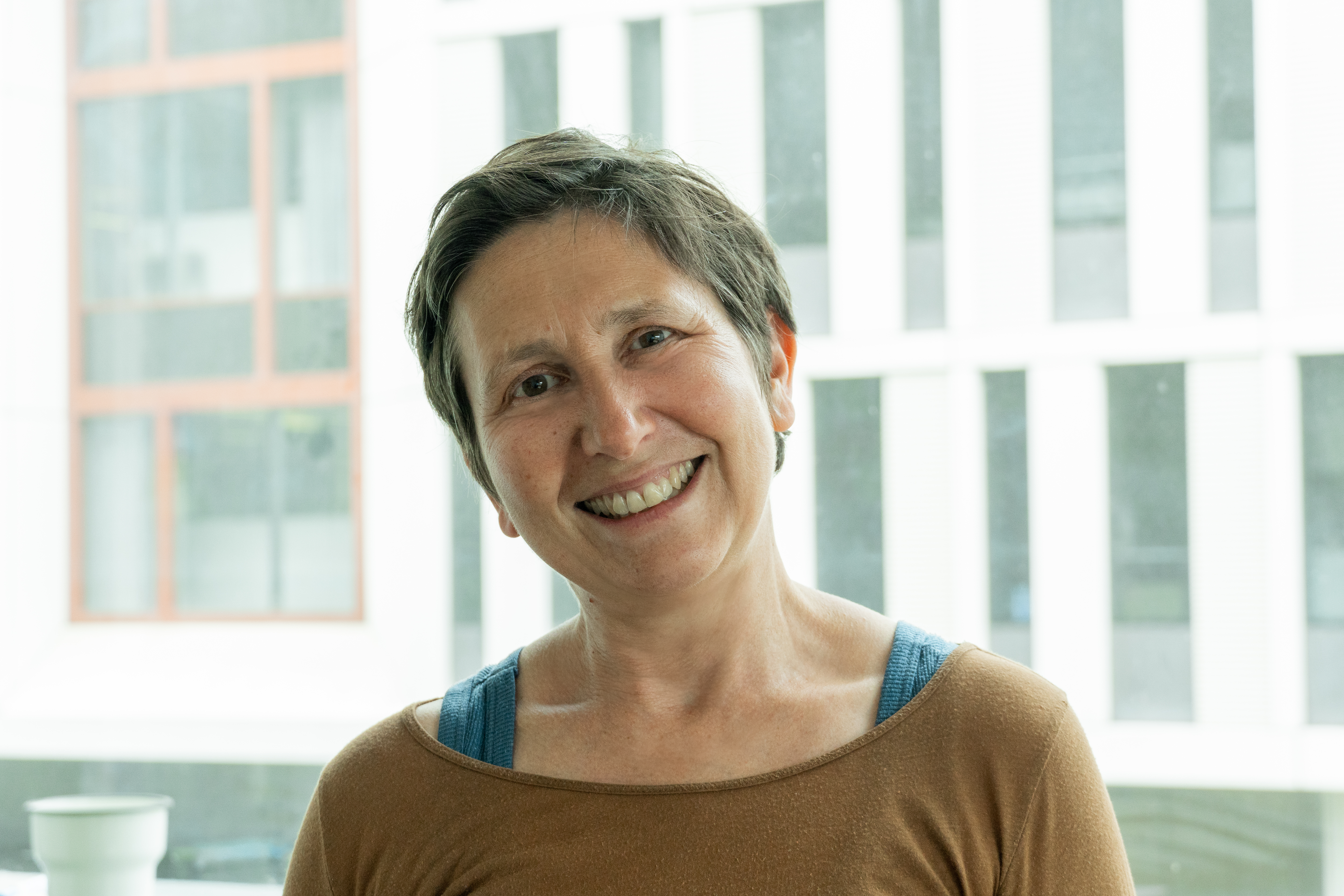
The Institut Pasteur–UCSF QBI "Faculty Mini-Sabbatical Program" is designed to exchange top academic talents from the Institut Pasteur and the University of California San Francisco for one- to three-month visits to build knowledge and new partnerships. The purpose of sabbatical leave is to provide an opportunity for faculty members to engage in scholarly, creative, professional, research, or other academic activities that will enhance the faculty member's further contributions to their institution and the world in the name of scientific research and excellence towards pandemic preparedness. In this sense, the visiting scientists will get the opportunity to interact with leading scientists from either institution on their research programs.
Caroline Demeret, Head of the Interactomics, RNA and Immnunity Group in the Virology Department at Institut Pasteur, provides a reflection of her time at UCSF as part of the Mini Sabbatical Program.
My main research topic consists in the mapping the direct contacts between the viruses and human proteins, i.e the viral/host “contactomes”. We have developed high-throughput interactomic pipelines based on split-luciferase assays, and which are (i) systematic (matrix-based) (ii) comparative (iii) semi quantitative. We thus generate intensity maps of virus/host interactions, that we already applied to a range of viruses. The goal is to unravel molecular mechanism underlying viral pathogenic power, and viral adaptation to humans
I’m dedicated to the understanding of viral infectious diseases at the molecular level, and which keeps my motivation and enthusiasm along the years is first that my work, even if far from being directly applied, has an impact on improving human health. And it's fascinating to explore how viruses take advantage of the cell, as it constantly brings unexpected surprises about how finely tuned cellular processes are, and the extremely elaborate ways in which viruses hijack these processes. Studying these virus/host interactions is also an excellent way of grasping the ultra-complex processes at work in the cell, which constantly stimulates my utmost curiosity!
I’ve been in contact with the laboratories of Nevan Krogan, John Gross, Alan Frankel, Melanie Ott, Klim Verba, Michelle Arkin. I’ve also met Shirit Einav (Stanford) and Britt Glausinger (Berkeley). The synergy of our scientific vision lies in the fact that we approach all our study models through the prism of protein-protein interactions and their functional consequences, whether in the context of infection or non-infectious diseases (such as autism). In this respect, the combination of "direct contact profiling" that I'm developing with the identification of protein-protein interactions at proteome scale (AP/MS or proximity labelling), or with the characterization of the structure of protein complexes (i.e cryoEM) promises to move us towards a more complete understanding of infectious diseases or other human illnesses.
Understanding and combating infectious diseases is clearly an area of global challenge. Given the scale of the task and the growing complexity of the technologies at our disposal, which require both specialized skills and tools, it is essential to pool our efforts around the world. My aim has been to bring our approach to the attention of QBI scientists - with whom we share many interests - and to identify how our approach can add to their studies and inversely how their approaches can enrich mine.
By... working! We've already planned several experiments that I'll be setting up in Paris on my return. The idea is to start as soon as possible in Paris with focused experiments on protein-protein interactions that have been proposed by my collaborators. Mid to long term collaborations should emerge from these initial attemptsI hope to be able to keep in touch by mail, through online meetings, and above all by welcoming colleagues to Pasteur. It's such an effective and dynamic way of advancing science.